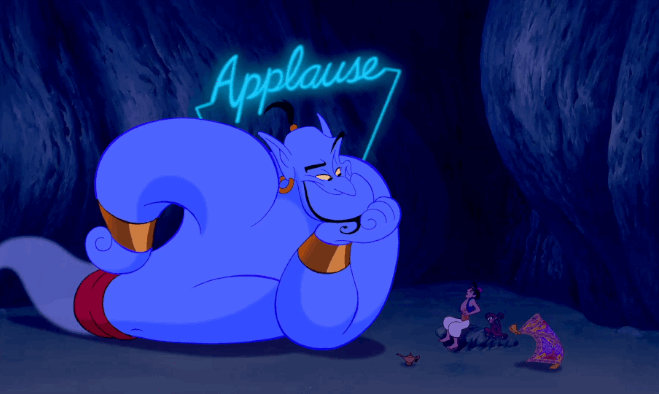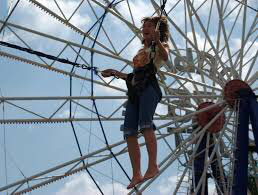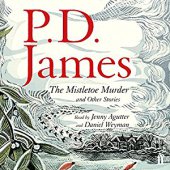“Gerard, you took life from them once. Don’t do it again!”
“First, Gerard killed Quentin,” Tad explains. “And then, soon after that, Carrie and I died!”
“And then what happened?” Barnabas asks. He’s trying to figure out when we’re getting to the interesting part of this anecdote.
But never mind about that. Collinwood will crumble today, just like everyone thought it would four years ago. Turns out the vampire was a reprieve, not a cure; sooner or later, gravity reasserts itself, and Icarus takes a tumble into the sea. We’ll be leaving the Collins family as we know them, bound for the nineteenth century and points north, which means we’re not responsible for the future anymore, and Tad and Carrie can live or die in whatever order they choose.
Heads up, Collins family: Today is the last day of the rest of your life.
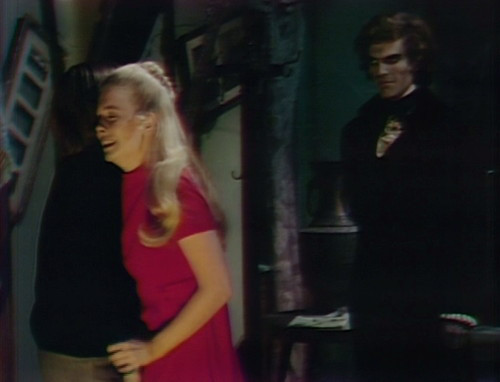
The problem is this: spectral mastermind Gerard Stiles has arranged for the reincarnation of three people that he doesn’t seem to like very much, and now he wants to kill them again, for reasons of his own. It’s not super clear what he was hoping to get out of this haunting, but he didn’t get it, and he’s furious about it.
Gerard is a white-hot five-alarm twenty-four hour spitfire rage machine, forged in Hell and taking no prisoners. He’s angry at Quentin (*not our Quentin) probably for stealing his girlfriend, and he’s angry at the children (*not our children) probably for not paying enough attention to the toy carousel music box that I guess maybe he gave them for Christmas and they never sent him a thank you note. He wants revenge and he wants justice, and most of all he really just wants to murder these children. I am entirely sympathetic with his goals. I don’t understand why the kids have to wear special clothes in order to be murdered, but otherwise I am completely on board.
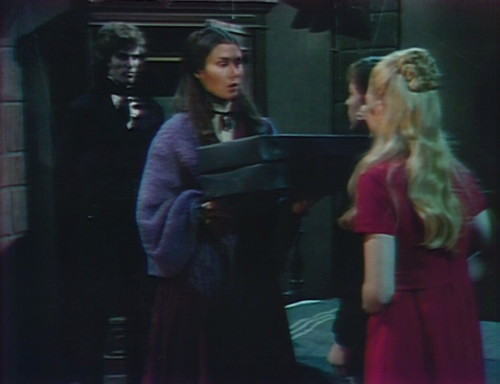
Gerard silently issues commands, and everybody else just does what he wants; that was true when Barnabas and Julia visited the future, and it’s true now. I don’t know if anyone’s actually resisted him or even sassed back very hard, except when Barnabas told Julia not to kill herself with a knife. Everybody else has pretty much gone along with whatever Gerard suggests.
So he’s been puppeteering his way through a reenactment of whatever curse he got most of the way through back in 1840, painstakingly reviving the important players, and arranging for set design and costume changes. He re-created an impossible playroom that’s bigger on the inside, taking a medium-size linen closet and inflating it to a king-size toy palace. He distributed hypnoclothes and model ships and prophetic dreams, and he rescued objects from burning in the fireplace. He did a bunch of things with a dollhouse that are not easy to explain.
At Gerard’s instruction, Elizabeth redecorated the foyer. At his behest, Carolyn sang a song in the drawing room. He scolded and scalded and broke Hallie’s arm. He crashed a family picnic. He installed a green flag in the tower room, to be used as a self-destruct button for Collinwood. There was also a thing about an unfinished horoscope; I’m not sure what that had to do with anything.

And there honestly doesn’t seem to be any way for Barnabas and Julia to stop him; they’ve just been watching as Gerard advances his program, step by inevitable step.
They spent days reading through diaries and journals and combing through tax records looking for Rose Cottage, and finally they followed Carolyn and discovered that Rose Cottage was another name for the old MacGruder place on Cumberland Road. This discovery did not help them in any way.
They told Elizabeth to send the children away, and she refused. When they finally managed to send the kids to Windcliff, the ghosts just hitched a ride, and kept on doing chalk-and-candle rituals.
They persuaded Quentin to take Daphne and drive as fast and as far as he could manage, and while Quentin and Daphne were packing, Gerard poisoned them and then Quentin obediently buried himself in an unmarked grave.
And all that time, Gerard just smirked and sneered, and went on doing whatever he wanted. They can’t discover his weaknesses, because he doesn’t have any. They can’t negotiate with him, because he doesn’t want anything, and he doesn’t care what happens.

So all we can do is sit back and observe the coming cataclysm, as Gerard directs the players through their final paces. Barnabas and Julia dig Quentin out of the ground, and that feels like a victory for ten or fifteen seconds, but if Dark Shadows has taught us anything, it’s that you can’t solve your problems by digging up a mystery box. It only makes things worse.

“I was as though I became the Quentin Collins of 1840,” says the Quentin of today, recounting his underground experience. “And I had the memory — I had the memory of Gerard — of Gerard waving a green flag at a window, three times. Which window, I don’t know. But the destruction of Collinwood came right after that!”
Barnabas gasps, “You mean, the destruction was caused by the waving of the red flag?”
“Yes!” answers Quentin, so possibly he’s color-blind. “I don’t know why, or how, but that is how it happened!”
So as I understand it, he became the Quentin of the past, and then remembered something that’s going to happen about ten minutes in the future. That’s not what “memory” means, but I suppose there isn’t a good word for whatever the hell he thinks he’s talking about.

But the important thing is that the Quentin Collins of 1840 knew where the impossible playroom was, hidden behind some fold of the continuum, and he leads Barnabas and Julia straight to the spot.
But that’s not the important thing, because the children aren’t there, so our heroes have to leave the playroom and run around the house shouting out the children’s names, which they probably would have done anyway.

When they leave the room, Gerard remains, smiling at his handiwork. Gerard is everywhere, and the only thing he loves is ash.
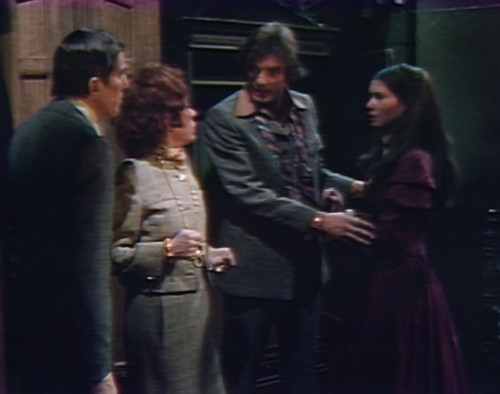
And I hear that train a comin’, rolling round the bend, and nothing can stop it, not even the combined power of Barnabas, Julia and Quentin. One of Gerard’s many unacknowledged powers is that he fills the air with IQ-sapping nerve gas, rendering even the smartest characters foolish and unproductive.
“Now, listen to me, all of you,” Quentin pants. “I’ve got to be alone with the children.”
“Why, Quentin?” they ask.
“I have no time to explain. Barnabas, you take Daphne and Julia with you.” He passes Daphne over like she’s baggage. “You’ve got to trust me, all of you!”
And they do, for some reason, even though Quentin was the one who spent the evening burying himself alive, and he’s still not completely sure which Quentin he is. The Quentin of 1970 doesn’t love Daphne; practically the only thing that he knows about her is that she spent several weeks hypnotizing him with lilacs, and turning him against his friends. But they trust him anyway, all of them. It’s not the right call.

We seek the guidance of a star!
Quentin cries, looking out the window and appealing to an uncertain authority.
A star out in the cold of time and space, far out beyond us!
A star that is responsible for the guidance — not of two, but of four children!
For David Collins and Hallie Stokes are the ancestral twins — the astral twins! — of Tad and Carrie, who stand before me now.
Only by the light of the star was their possession possible, and only by the light of the star can they be restored to their selves!
But it doesn’t work. Or maybe it does, it’s impossible to tell. Quentin declares it a win anyway.

“You have lost, Gerard!” Quentin announces. “It’s all over now! Do you understand that? You have lost!”
But Gerard doesn’t care if you talk back to him. He likes it; it just makes him meaner.
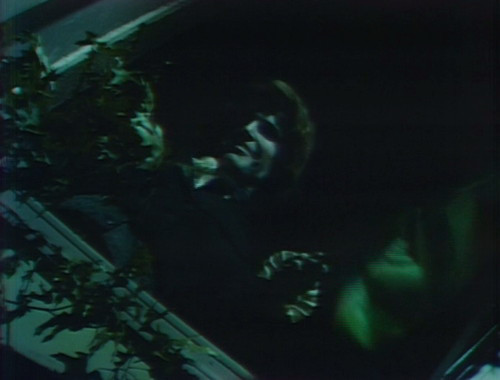
Gerard grabs Quentin by the throat and tosses him away, and he goes to the window and raises the green flag, and he waves it three times, as he always has, as he always will.
And they’re off!

And here come the zombie pirates, buried in unconsecrated ground, without the benefit of a coffin. There’s just, like, an inch of loose topsoil that they shake off, and go.
And that’s the end of the world, really. Everything after that is just details.

You can’t stop something like Gerard. He is the inevitable consequence of whatever it was that you did. You can say “please” and “no” and “stop” as often as you like; you can call upon a star in the cold of time and space. You can run, and you can hide, and you can ask for an extension, but he will come for you, and he will make you put on somebody else’s clothes, and then he will murder the shit out of you.

And the pirates will come into your house, and they will look at your decor, and they will make the collective decision that Everything Must Go.
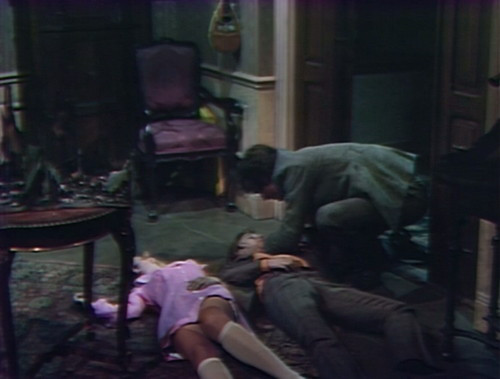
And the waters will rise.
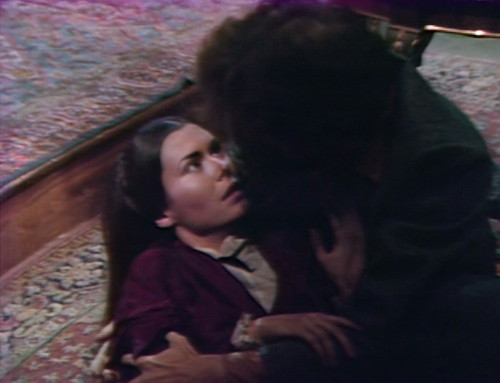
They asked you what was wrong. They asked who you were talking to, in that empty room. They asked if you could hear the music, if you could explain the clothes, if you knew where Rose Cottage was.
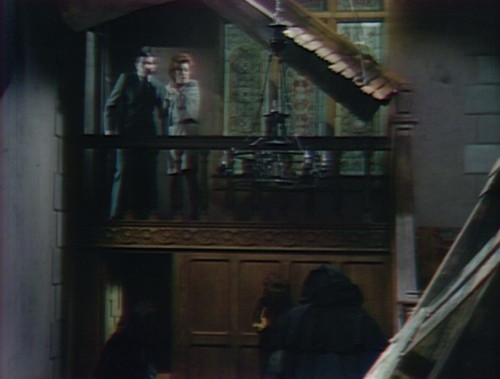
They asked for your help. They tried to protect you. And you made the wrong choice, every single time.
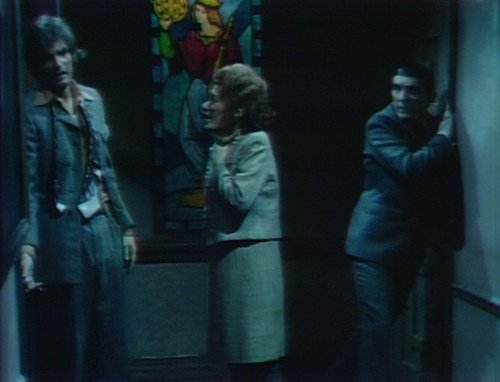
So what happens to this timeline, to this house, when the heroes have gone? When the people who tried to contain the calamity find an access hatch and escape, back into the past? What happens, when the twenty-five years of suffering unhappen?

If this world is twice-doomed, first to fall and then to evaporate into the almost-was, destined to be contradicted and unwritten, then who shuts down this useless universe, this world without Dark Shadows?

“The dead are restless,” he said, way back when. “Very restless!” You can’t say he didn’t warn you.

“They were calling for help!” he predicted. “But there is no help for them!”

He knew it even then, way back at the beginning.
“There is danger here!” he said. “If you value your lives, you must go! Go!”
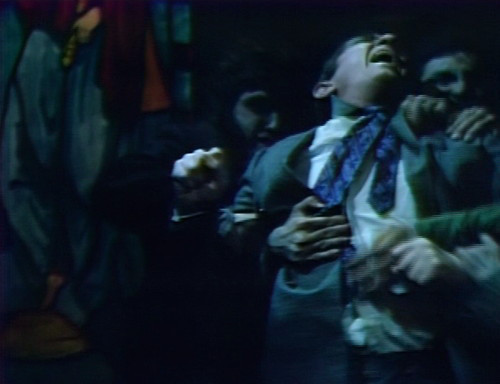
And they went, but in the opposite direction. Barnabas and Julia and Quentin, and all those restless souls, the housewives and teenagers, the eleven women and the fifty-eight lost children, running headlong into the four-year oncoming cataclysm that they refused to even try to avert.
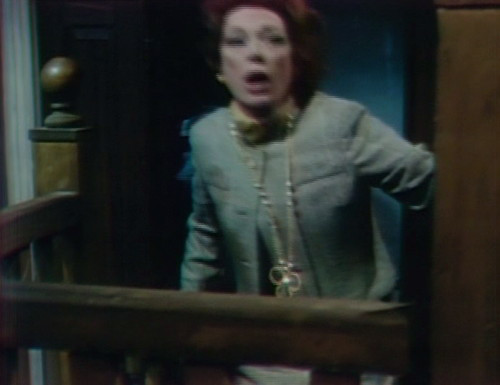
Someone has to turn off the lights, and shoo everyone away. Someone has to arrange for the entropy, and tie up the timeline.
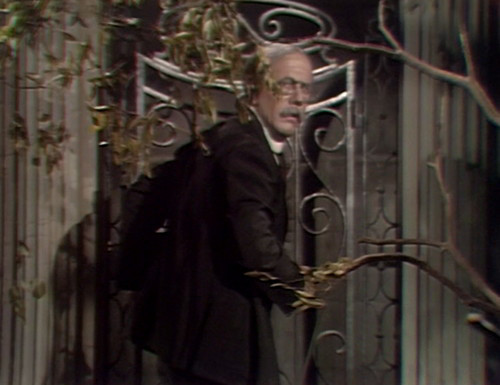
And someone has to stay behind, and make sure that no one sets foot in this shuttered universe again. “The dead must rest!” he will say. And they will, eventually.
Tomorrow: Attack of the Clones.
Dark Shadows bloopers to watch out for:
Gerard walks backwards as he beckons Tad and Carrie, but he has to look behind him for a second to make sure he’s not going to trip on anything.
Tad tells Carrie, “We weren’t here — we weren’t brought here just to see Daphne!”
Barnabas asks, “You mean the deshcrusht — destruction was caused by waving of the red flag?” He means green flag.
When Quentin takes the children to the tower room window, he puts his left hand on David’s head, and his right hand on Hallie’s head. The next shot is from underneath the window, and the children are reversed; Hallie is now on his left and David on his right. David is grinning as the shot begins, so maybe something happened that required a tape edit?
Then he says, “David Collins and Hallie Stokes are the ancestral twins — the astral twins! — of Tad and Carrie.”
As the pirates rise, you can see one of the studio lights on the right that’s flashing the “lightning” effect.
When Quentin, Barnabas and Julia leave the tower room, the camera shows the edge of the set on the left; you can see them past the set as they go.
When the pirates start smashing things in the foyer, watch the zombie in the black cloak. He walks up the stairs and pulls down the tapestry, but this makes his hood fall down. Looking around to see if anyone notices, he pulls the hood up to cover his head, and fusses with it. This is a great one, you should definitely look at this.
About twenty seconds later, one of the pirates throws a green blanket into the air, and it falls on the bald pirate’s head. He pulls it off, and looks up at the studio to see if the camera caught that.
When Barnabas and Julia come out on the landing, a bunch of stones and rubbish falls onto the scene — but the canvas that was holding the stuff is clearly visible; it should have been a lot higher.
Behind the Scenes:
The six pirate zombies are played by Chuck Morgan, James Donahue, James Langrall, Al Lust, Richard Molich and Victor Romano.
Chuck Morgan is the veteran zombie; six months ago, he played the zombie Emory Page in episodes 963 and 964. For the other actors, this is their only Dark Shadows appearance.
If you count the silent zombies who don’t appear in the credits, there are 13 actors in this episode — the most people in any episode of Dark Shadows. In act 2, there’s a scene that squeezes six people into the tower room, although you can’t see them all in one shot because the tower room set isn’t big enough.
Tomorrow: Attack of the Clones.

Dark Shadows episode guide
— Danny Horn
Share this: